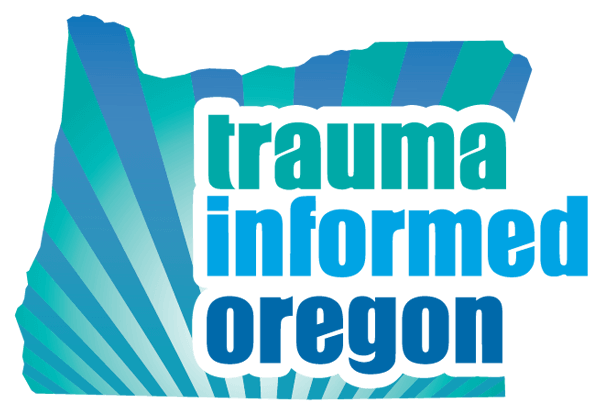Blog
 Questioning “Business as Usual” – TIO Happenings July/August 2017
Questioning “Business as Usual” – TIO Happenings July/August 2017

August 1, 2017
From Mandy Davis, LCSW, PhD, Director, Trauma Informed Oregon
A Few Changes
Along with changes to the Trauma Informed Oregon (TIO) website, you might notice that our newsletter has a bit of a new look. We’ve changed the template slightly and we’re also focusing our newsletters – and my TIO Happenings blog post – around a particular theme. I will be sharing my own perspective on that theme as well as connecting the blog to what’s going on at TIO. If you haven’t subscribed to our newsletter yet, be sure to sign up here so you get our newsletter delivered to your inbox every two months.
Learn and Evolve!
Our goal for this newsletter is to highlight topics related to mental health and interventions with a hope to expand our “business as usual” notions. Following my graduate studies, my work mostly involved providing individual and group therapy services to those affected by sexual assault and domestic violence. My training prepared me to provide safety planning followed by an undetermined amount of therapy focused on regulation and relationship goals through validating and sharing the experience while developing skills for things such as coping with flashbacks, being assertive, or forming safe relationships. My training did not prepare me to integrate and utilize peer support. Conversations about incorporating peer support and the voices of those with lived experience were limited to learning about the 12-step model or self-help groups. In fact, as I reflected on this in preparation for this blog I realized the conflicting messages we often gave about the importance of peer support and lived experience voice.
For example, we often recommended that those who survived sexual assault and abuse attend groups because we believed that realizing you are not alone was a critical ingredient for healing. Even though we wanted people to connect in the group we often discouraged—even making it a group “guideline”—group members from connecting outside of the group.
As for many of us in this work, my best teachers have been those who let me partner with them in their healing journey, especially in those early years. They taught me the benefits but also the limits of the work I could do sitting in my office—reminding me about the healing that comes from being able to help others by sharing your experience, having access to people you can see yourself in, and knowing the healing practices of your culture.
Achieving and maintaining mental wellness is a dynamic process where one size does not fit all. Because of those who have shared their experiences and those who listened, we recognize the need for a diverse set of strategies to promote wellness, safety, value, and empowerment.
We can learn and evolve! Our blog post contributors this month (thank you for sharing!) represent many of these evolved practices. When I reflect on how I was trained and then see these innovative approaches I am hopeful.
Helpful Blog Posts
Check out our latest blog posts to expand your “business as usual” notions:
- Lived Experience to Promote Healing – The Courage to be Vulnerable; Fear of White: Inter-Generational Racial Trauma; My Personal Perspective of Living with Post-Traumatic Stress
- Innovative Practice – Access to Effective Care and Support Can Make All the Difference; Living on Purpose: Embodying Intentional Peer Support
- Peer-Driven Tools: Youth Engagement in the Emergency Room
- New Billing Codes to Promote Early Intervention: They’re Not Too Young, It’s Never Too Soon to Address Trauma
